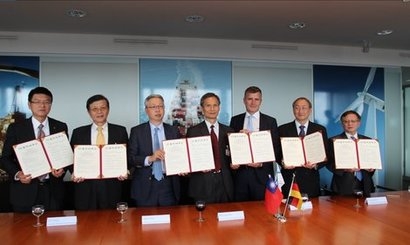
The agreement aims to drive the expansion and facilitate the development of offshore wind in Taiwan by facilitating knowledge transfer and technical cooperation, enabling future offshore wind leaders to build on the experience from mature markets. The regulations for certification will be headed by the Bureau of Standards, Metrology and Inspection.
Taiwan is one of the rising offshore wind markets in the world. It is Asia’s second biggest offshore wind market after China. DNV GL’s Energy Transition Outlook report forecasts that Asia will become the leading global offshore market, taking over from Europe, with 33 percent of global capacity to be installed in China alone by 2050. Installation rates for offshore wind in nascent markets such as Asia depend on rapid development of the supply chains and enabling regulatory processes. As the focus moves from Northern Europe to other emerging regions, it is essential that the industry learns from experience in mature markets and does not repeat mistakes.
“Local knowledge from our MOU partners combined with the broad experience in offshore wind from DNV GL, will help the industry to accelerate the country’s offshore wind targets and make offshore wind in Taiwan a reality soon” said Kim Mørk, Executive Vice President Renewables Certification at DNV GL. “As a certification body we have been involved in more than 75 percent of all offshore wind farms globally, giving us a comprehensive industry insight and knowledge based on experience from the world’s leading offshore wind markets.”
Per Haahr, Regional Manager Asia Pacific for Renewables Certification at DNV GL, and recently appointed head of the local certification team in Taipei, welcomed Taiwanese plans to invest significantly in human resources in order to establish project certification in the local market and guarantee safe, reliable and high performance projects
Fostering the technical cooperation and sharing experiences from DNV GL’s leading certification services for the Taiwanese offshore wind market will play an important role in minimising the number of design risks and creating confidence in the local industry.
Over the past decade, certification has supported pioneering advances across the renewables industry by improving the reliability of products and projects. As the industry is evolving, new innovative projects forecast to continue the growth will need to demonstrate their capabilities, whilst the focus on the long-term performance of traditional technologies remains of high importance.
Image: The MOU signing ceremony (DNV GL)
For additional information:

